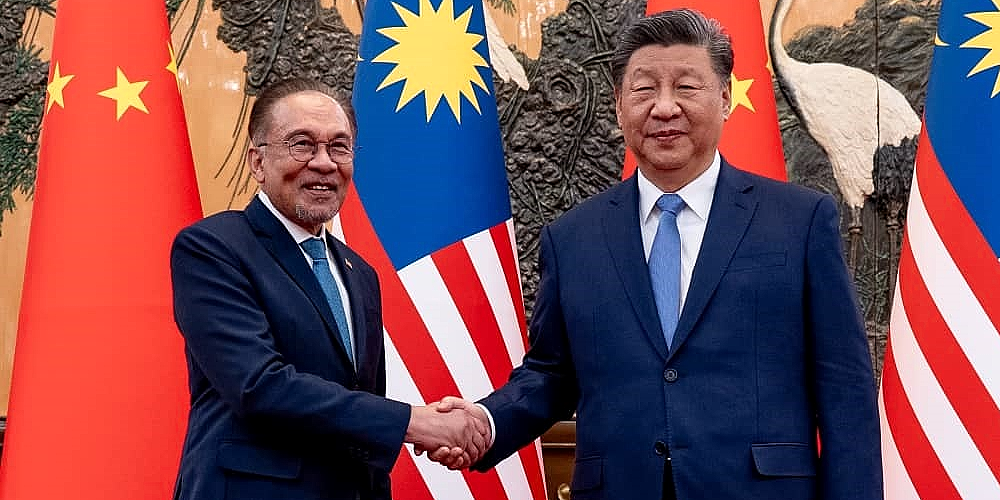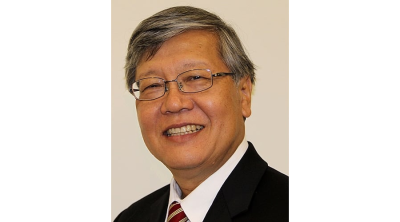
Chinese President Xi Jinping will visit three ASEAN countries—Malaysia, Cambodia, and Vietnam—next week.
Xi’s visit to these three Southeast countries is widely seen as a counter-measure to US president Donald Trump’s tariff policies, which have shaken the world trade system. Southeast Asia is not spared too.
China is expected to step up efforts to deepen its economic and bilateral ties with ASEAN.
Malaysia currently is the rotating chairman of ASEAN. Xi’s visit to Malaysia is scheduled from April 15 to 17.
Last year, Malaysian King Sultan Ibrahim and Prime Minister Datuk Seri Anwar Ibrahim visited China separately and met with Xi Jinping, who was invited to visit Malaysia.
This will be Xi’s first visit to Malaysia in 13 years.
Trump’s “reciprocal tariffs” have disrupted the short-term economic plans of ASEAN countries and undermined the foundation of their long-term development models.
This has further pushed ASEAN to forge closer ties with China.
Last week, ASEAN nations were shocked by the new US tariffs: Cambodia was hit with a 49 percent tariff, Vietnam 46 percent, and Malaysia 24 percent.
Although the rate for Malaysia is relatively lower, it still represents unfair treatment.
ASEAN is China’s largest trading partner. For five consecutive years, China and ASEAN have been each other’s biggest trading partners. In 2024, bilateral trade reached 6.99 trillion yuan (US$953 billion) or RM4.226 trillion.
China is positioning itself in Southeast Asia as a defender of the global trade system and rule-based order, which is a sharp contrast with the unilateralism and economic coercion practiced by the US.
Beijing believes the US intends to use high tariffs to pressure countries like Vietnam and Cambodia to crack down on transshipment of Chinese goods. Hence, how China liaises with ASEAN to handle the US tariff pressure is worth watching.
As usual, Trump is unpredictable where he made an impromptu announcement on Wednesday to suspend the tariff for 90 days.
The damage has already been done, although the delay may bring temporary relief.
This nevertheless reinforces the view that Trump is using the tariffs as a coercive diplomatic tool aiming to rally countries against China.
By using the tariffs, Trump is forcing third-party countries to choose sides and reduce economic ties with China.
Judging by China’s counter-measures, it is prepared to defend its global economic and trade standing. It plans to strengthen economic integration with Southeast Asia and expand China’s investment in the region.
Xi recently stated in Beijing that China’s relationship with its neighbours has entered a critical phase, where regional dynamics are deeply interlinked with global changes.
He emphasised building a “community of shared destiny”, enhancing development integration, strengthening industrial and supply chain cooperation, maintaining regional stability, and tackling various risks and challenges together.
The ASEAN-China Free Trade Area (ACFTA) is China’s first independently negotiated free trade zone and the first in the ASEAN region.
Last October, both parties agreed to accelerate legal reviews and domestic procedures to work toward signing the CAFTA 3.0 upgrade protocol in 2025.
Xi’s visit is widely seen as a counter-measure to US president Donald Trump’s tariff policies, and China is expected to step up efforts to deepen its economic and bilateral ties with ASEAN.
On April 9, Chinese Commerce Minister Wang Wentao had a video call with Tengku Zafrul Tengku Abdul Aziz, the Minister of International Trade and Industry. Both exchanged views on strengthening Malaysia-China and ASEAN-China trade collaboration and the reciprocal tariffs imposed by US.
During the call, China expressed willingness to work with ASEAN and other trade partners to enhance communication and coordination, resolve issues that they are concerned through equal dialogues based on mutual respect and uphold multilateral trade system together.
ASEAN countries have long pursued a diplomatic policy of relying on the US for political security and on China for economic development. They are reluctant to take sides in the US-China rivalry.
However, under the pressure of US tariffs, the response of each ASEAN country has become more subtle.
Prime Minister Anwar has made it clear that Southeast Asian nations will engage with the Trump administration for joint negotiations, while also seeking to diversify their trade relations beyond US.
Southeast Asian countries should heed Anwar’s advice—only by uniting can they withstand unpredictable US threats and avoid deeper imbalances in economic ties with China.
Under Anwar’s leadership, Malaysia has consistently sought to maintain a balanced foreign policy.
Xi is likely to seek greater Chinese investment in areas such as green technology, digital infrastructure, and higher education in Malaysia, with hopes of reaching more agreements during his visit.
One focus of attention is whether the mutual visa-free policy, which has benefited tourism and bilateral trade between Malaysia and China, will be extended.
Last year, Malaysia and China celebrated 50th anniversary of diplomatic ties. During his visit to Malaysia, Chinese Premier Li Qiang and Anwar attended the ground-breaking ceremony of the East Coast Rail Link (ECRL) station in Gombak, a flagship Belt and Road Initiative project.
Both countries signed multiple cooperation documents, including a new five-year economic and trade cooperation agreement, highlighting the importance of economic pragmatism as the cornerstone of Malaysia-China bilateral relations.
For China, Malaysia has always been an important partner. And at this critical time, Malaysia’s significance goes beyond bilateral relations.
Malaysia was the first ASEAN country to have established diplomatic ties with China during the Cold War and among the earliest supporters of China’s Belt and Road Initiative.
Overall, Malaysia-China cooperation has expanded deeply into various sectors. The strong economic ties and frequent cultural exchanges are the best evidence.
The bilateral relationship is a model for ASEAN-China ties, playing an indispensable role in promoting broader cooperation.
We hope Xi’s visit will elevate Malaysia-China relations—and even ASEAN-China economic cooperation—to new heights.
ADVERTISEMENT
ADVERTISEMENT








































